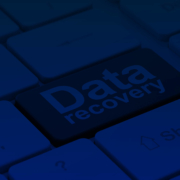Business Guide to Surviving the Next Hurricane Harvey (Part One)
For many people in our great nation, 2017 was a very tough year. That is particularly true of our friends, family and colleagues here in Houston and the surrounding areas impacted by Hurricane Harvey. With respect and interest in further helping the professionals and businesses involved, we have created a short guide to stopping business interruption in the event of another catastrophic event.
According to the National Hurricane Center, the Category 4 hurricane did over $125 billion in damage. Thousands of businesses were forced to close temporarily due to the disaster, and many closed permanently. Not only were people out of house and home, but many had no job to return to after recovery got underway.
We would like to share some essential information that will help your business survive in the event of a disaster. Here’s how to stop business interruption in its tracks:
You Need a Business Continuity Plan
A business continuity plan is just that, a plan to ensure that your business continues to operate in the event of a disaster. This internally developed document outlines the key individuals and their roles in initiating a step-by-step procedure to keep your business operational regardless of the series of events that may have occurred. This plan will be the framework for surviving beyond any disaster, and it will provide a reference point for training your employees in best practices and business resilience.
The specifics of your business continuity plan will vary to some degree based on your business, the geographic location of your employees, and the nature of the disaster. Here are some of the key areas that all plans must address.
Operations
Once you are confident that your data is being safely backed up, you then have to address operational procedures to continue serving customers. Your business continuity plan should always include a list of responsibilities and delegations so that you can be up and running as soon as possible.
After connecting with your team to make sure that everyone is safe, you’ll probably wonder how your employees will get back to work once their physical systems are no longer available. Many businesses at this point will create a business recovery site as an official base of operations.
Business recovery sites can range from skeletal offices with basic internet access and a few desks to fully operational offices that basically mimic the original site’s functionality down to computer hardware and amenities.
No matter what type of site you can afford to invest in, you’ll want to make sure that you have some sort of operational backup in mind.
Your recovery site, or even your remote worker recovery plan, can be organized by your managed services professional so that it fits the security standards already in place within your current network configurations.
Data Backup
When something as strong as a hurricane strikes your business, there’s little doubt that the physical hardware within your office will be compromised. If you have not backed up your data, then you will most likely lose all of the data that is essential to running your business, especially if your business systems are located at or below ground level.
Most data backup solutions will include a combination of backing up your data to additional local servers, as well as a cloud solution that will maintain copies of all your data in an off-site location unaffected by current issues to keep it safe from any potential data loss due to physical damage.
You would be surprised how often, even without a natural disaster, business owners lose data due to hardware failure. In the USA, historically about 140,000 hard drives fail every week.
Your physical infrastructure, including your server and other IT-related technology, is important and should always be updated to meet the demands of your business. That being said, it is still the data stored on your systems that is most important to running your business. You don’t want, and can’t afford, to lose that data.
Communications
A successful business continuity plan will always include communication protocols. It’s important that both your employees and customers know who to turn to for leadership and support.
For your employees, make sure that you have a dedicated line established that they can call for detailed business continuity instructions. Don’t rely on live information, because you will find that one person answering the phones is not adequate for the multiple people requesting information.
For your customers, you want to prepare a series of messages and a delivery schedule to make sure that they are alerted, informed and reassured that despite any possible disaster, you will be operational and open for business and they can know what to expect.
Stop Business Interruption in 15 Minutes or Less
Here at GB Tech, we will work with your business to create a business continuity plan that not only guarantees minimal business interruption but also will have you operational in 15 minutes or less.
We believe in Houston businesses and we are happy to share more specific information about how to keep your business going in the event of a disaster.
Please reach out to GB Tech to learn more. You can contact us about anything, any time.























